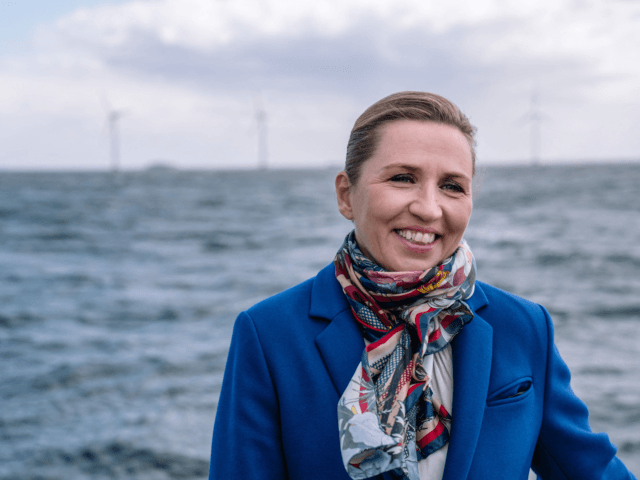The Prime Minister of Denmark has said that in order to take on Vladimir Putin, her country will need to focus more on green energy, despite decades of green agendas in Europe still seeing much of the continent dependent on Russia for energy.
Laying out her left-wing Social Democrat government’s ‘Denmark can do more II’ energy proposals on Tuesday, Prime Minister Mette Frederiksen said that her country will seek to end its reliance on natural gas by the year 2030, using so-called green alternatives instead, including wind, solar, and biogas.
“When we become greener, we weaken Putin. And when we become greener, we slow down the climate change that is destroying our planet,” the Danish PM said according to the EU-funded Euractiv.
Frederiksen did note that her plan will require an increase in the production of natural gas in the North Sea to hold the country over during the transition period. The government has previously committed to ending gas production in the region by the year 2050 at the latest.
“We are doing this with our eyes wide open… until the production of green gas is sufficient to cover the need for gas, it is our clear conviction that it is better to get gas from the North Sea than to buy it from Putin,” she said.
The ambition to completely get off gas by the year 2030 was even questioned by members of Frederiksen’s own party, including Social Democrat vice-chairman Martin Lidegaard, who questioned: “How does the government imagine that we will manage to build so much solar and wind in the next eight years?”
Energy Crisis: Green New Deal Politics Making ‘Poor People Poorer’ – MEPhttps://t.co/xHKQKOuLim
— Breitbart London (@BreitbartLondon) April 7, 2022
Currently half of Denmark’s electricity comes from wind and solar, with other biofuel produced from agricultural bi-products and geothermal energy also accounting for some of its energy production. However, the Scandinavian country is still dependent on Russia for natural gas and oil.
This month, Danske Bank senior analyst Bjorn Tangaa Sillemann said that the country is currently facing the highest level of inflation in 37 years, hitting 5.4 per cent in March. The analyst predicted that inflation will likely continue to rise due to the rising cost of fuel and other economic factors.
The EU as a whole is more reliant on Russian energy than Scandinavia, with the bloc still sending some €1 billion (£828 million/$1.09 billion) every day to Russia for energy, despite levying sanctions on the country and government.
Germany, which has heavily invested in so-called green alternative energy sources, is among the hardest hit by relying on Russia for it energy, with the top EU economy facing down the prospect of a recession and inflation already seeing prices for food and fuel soar. Despite this, the leftist government of Germany has refused to lift its ban on fracking or its plan to shut down its nuclear power industry altogether.
Farage: EU ‘Funding Putin’s War Machine’, as Bloc Admits Spending €35bn on Russian Gas Since Invasionhttps://t.co/CQqKW2oyE7
— Breitbart London (@BreitbartLondon) April 7, 2022
Follow Kurt Zindulka on Twitter here @KurtZindulka

COMMENTS
Please let us know if you're having issues with commenting.